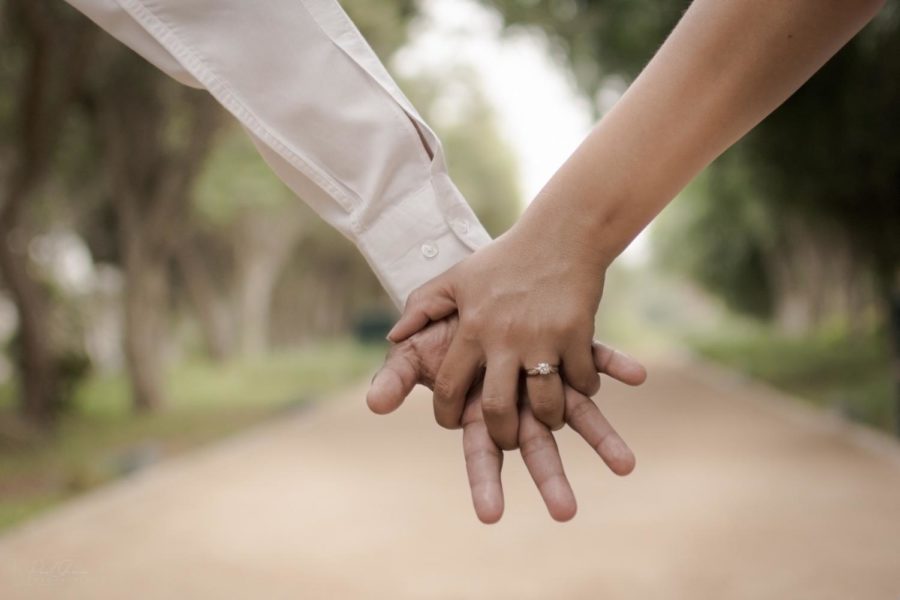College Compass: Four keys to a healthy relationship
College Compass is a bi-weekly blog that aims to help students navigate the highs and lows of college life.
More stories from Ashna Gupta
A man once told me dating is a game — you lose or you win. But in this dating game, every move is a loss until you win.
This stuck with me like a paperclip to a magnet. I was so discouraged over my endless number of failed dates until I heard that to win, I must face losses. It’s rare to win the first time you meet someone — or even by the third time.
You can’t expect to meet the right person even by the fifth date. We aren’t just talking about any guy, we are talking about the right guy — someone who gels with you. We’re talking about someone who gives you more confidence. Someone who can give you healthy feedback. Someone who accepts who you are, which includes your strengths and your flaws.
These things aren’t above and beyond. They are the basis of any healthy relationship. And this doesn’t only apply to finding the one, but also includes finding your true friends. Are you truly in a substantial and meaningful friendship? You will meet people and they’ll keep coming in and walking out until someone decides to stay in.
Don’t lose hope if four, five, or even six people have walked out. You’ve made room for other people that will never choose to leave. Do not feel bad about the number of people who walk out of your life — it is not a reflection of your personality, it’s just destiny. I want to discuss some of the things that constitute a healthy relationship — whether it’s between a romantic partner or between friends.
Confidence
Building and maintaining confidence is possible in an atmosphere where you are given constructive feedback in a positive way. Feedback is crucial in order to make better decisions for yourself and grow into a better person. So where does feedback come from? Your loved ones! Your loved ones should not only provide you feedback, but as stated earlier, do so in a constructive and positive way. This criticism is not meant to question who you are as a person, but to build your confidence and motivate you to become a better version of yourself.
Acceptance
Acceptance means whole-heartedly accepting another person. This allows a person to empower themselves. So what are you accepting?
What some people may consider flaws, other people consider strengths. These are all different elements which make someone who they are. When building meaningful relationships with others, you are accepting them and letting them into your life. This means you can’t just acknowledge the strengths and ignore the flaws. You must accept someone for who they are as a whole, and then you can expect the same in return.
Sophia Choukas-Bradley is an assistant psychology professor whose research interests include gender, sexuality and romantic relationships.
“A very important aspect of healthy relationships is that they allow partners to feel safe, respected and happy both within the relationship and in the rest of their lives,” Choukas-Bradley said.
Adjustments
No relationship is perfect. Each and every relationship will have its ups and downs — at points in the relationship there will be happy, perfect moments while at other points there will be tension and disagreements. So what do you do during the downs? Well, you definitely don’t start fighting with each other. Someone else should not be attacking you and vice versa.
Rather, take a minute for yourself. Breathe and take a moment to calm down. In a healthy relationship, the other person should be willing to talk.
Through her work, Choukas-Bradley discovered that communication really is key when it comes to maintaining a healthy relationship.
“I have learned that one of the most important aspects of healthy romantic relationships is healthy communication. Many couples experience unhealthy communication patterns in which partners do not truly listen to each other,” she said.
She also described a technique to help foster healthy communication.
“A much healthier and more productive way of communicating is to practice a form of communication in which partners take turns as ‘speaker’ and ‘listener,’ with the listener’s job being to try to put oneself fully in one’s partner’s shoes and empathically understand their perspective — without interrupting or responding with one’s own opinion or feelings,” Choukas-Bradley said.
Both people in this relationship should express their concerns and why they may be upset. Talk it out and show understanding for each other. Apologize if needed. In many cases, two people in a relationship may just agree to disagree and leave it there — and that’s okay.
Trust and honesty
These are the biggest components of a healthy relationship. Without honesty it is difficult to build trust, and without trust it is difficult to depend on each other for support. Without these components a relationship is filled with doubt, conflict and anger.
There can be misunderstandings at times. If they are unintentional and due to a relatively small issue, it’s also very important to forgive the other person. Don’t jump to the conclusion that the other person has broken your trust. Like I mentioned before, during conflict it’s important to first talk it out and understand where the other person may be coming from.
Finding important and meaningful relationships is crucial in order to help you grow. With these few aspects of a healthy relationship in mind, go out there and make some quality friends and romantic partners!






